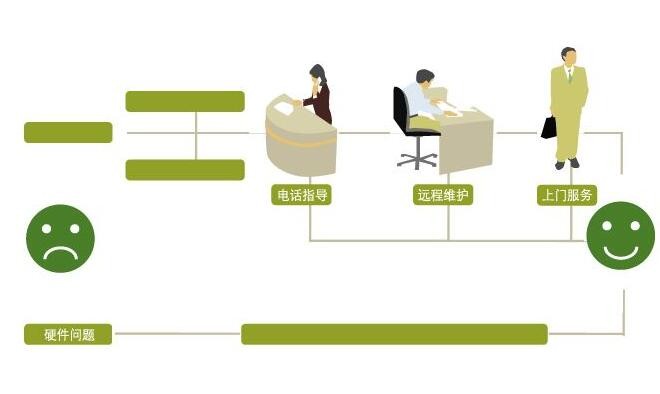This article aims to explore the versatility of word classes in PL English. Word classes, or parts of speech, play a crucial role in sentence structure and meaning. Understanding the different word classes and their functions can greatly improve language comprehension and production. In this article, we will delve into four aspects of word classes in PL English: nouns, verbs, adjectives, and adverbs. Each section will provide an in-depth analysis of the characteristics and usage of these word classes. Through this exploration, we hope to shed light on the rich persity of word classes in PL English and illuminate their impact on language expression.

Nouns are essential elements in sentence construction, providing names for people, places, things, or concepts. In PL English, nouns exhibit remarkable versatility in terms of both form and function. Firstly, nouns can take various forms, including singular, plural, and possessive. These forms allow for precise expression of quantity and ownership. Moreover, nouns can function as subjects, objects, or complements in sentences, enabling the communication of different relationships and roles. As nouns can also be modified by determiners or adjectives, they have the flexibility to convey specific qualities or characteristics. Nouns in PL English are thus highly versatile and adaptable, contributing greatly to the richness of the language.

Furthermore, nouns can be categorized into various subtypes, such as common nouns, proper nouns, and abstract nouns. Common nouns refer to general categories of people, places, or things, while proper nouns identify specific inpiduals, cities, or brands. Abstract nouns, on the other hand, represent intangible concepts or ideas. This further expands the versatility of nouns in PL English, as different subtypes can be used to convey specific meanings or evoke particular associations.

In summary, the versatility of nouns in PL English lies in their ability to adopt different forms, perform various functions, and be categorized into different subtypes. Their flexibility and adaptability contribute to the richness and precision of language expression.

Verbs are the backbone of sentences, expressing actions, states, or occurrences. PL English verbs exhibit remarkable versatility in their forms, tenses, and functions. Firstly, verbs can take different forms to indicate different tenses and aspects. This allows for precise temporal distinctions and enables clear communication of when an action occurs or whether it is ongoing. Additionally, verbs can be conjugated to match the grammatical person and number of the subject, further enhancing their versatility and adaptability.

Moreover, verbs can perform various functions in sentences, including being the main verb, auxiliary verb, or linking verb. The main verb conveys the main action or state in a sentence, while auxiliary verbs contribute to the formation of complex tenses or the expression of modality. Linking verbs establish connections between the subject and the subject complement, providing additional information or attributing qualities to the subject.

In PL English, verbs can also be further classified into transitive and intransitive verbs. Transitive verbs require an object to complete their meaning, while intransitive verbs do not. This distinction adds another layer of versatility, as different verbs can demand different grammatical structures or convey different relationships between entities.

To summarize, the versatility of verbs in PL English lies in their ability to take different forms, perform various functions, and be classified into different categories. Their range of tenses, conjugations, and roles allows for precise and nuanced expression of actions and states.

Adjectives play a vital role in language, providing descriptions, qualities, or characteristics to nouns. In PL English, adjectives exhibit remarkable versatility in their forms and functions. Firstly, adjectives can take comparative and superlative forms to express degrees of comparison, enabling precise differentiation between entities. This adds depth and nuance to language expression, allowing for the comparison of qualities or attributes.

Additionally, adjectives can function as attributive or predicative adjectives. Attributive adjectives directly modify the noun they precede, providing specific information or attributing qualities. Predicative adjectives, on the other hand, follow a linking verb and attribute qualities to the subject in a sentence. This distinction broadens the functions of adjectives and allows for different sentence structures and meanings.

Adjectives can also be used in nominalized forms, serving as nouns in a sentence. This further expands their versatility and demonstrates their ability to adopt different grammatical roles and functions.

To summarize, the versatility of adjectives in PL English lies in their ability to take comparative and superlative forms, serve as attributive or predicative adjectives, and even function as nouns. Their persity of forms and functions contributes to the vividness and expressiveness of the language.

Adverbs provide additional information about verbs, adjectives, or other adverbs in a sentence. They play a crucial role in expressing manner, frequency, time, degree, or certainty. In PL English, adverbs exhibit remarkable versatility in their forms and functions.

Adverbs can take different forms, such as simple adverbs, comparative adverbs, and superlative adverbs, to indicate different degrees or levels of intensity. They can also be formed by adding the suffix "-ly" to an adjective, further expanding their versatility.

Moreover, adverbs can perform various functions in a sentence. They can modify verbs, providing information about the manner, time, or frequency of an action. Adverbs can also modify adjectives, indicating the degree or intensity of a quality. Lastly, adverbs can even modify other adverbs, further specifying or qualifying their meaning. This flexibility in function allows for precise and nuanced expression in PL English.

In summary, the versatility of adverbs in PL English lies in their ability to take different forms, perform various functions, and provide additional information about verbs, adjectives, or other adverbs. Their perse range of forms and functions enhances the precision and expressiveness of language.

The exploration of the versatility of word classes in PL English highlights their significant role in language expression. Nouns, verbs, adjectives, and adverbs all exhibit remarkable flexibility and adaptability. Nouns provide names, categories, and associations; verbs convey actions, states, and relationships; adjectives describe qualities and attributes; and adverbs offer additional information and specifications. Understanding the characteristics and usage of these word classes enables improved language comprehension and production. The richness and persity of word classes in PL English contribute to its vibrancy and effectiveness as a means of communication.
标题:pl英语中表示什么词性(Exploring the Versatility of Word Classes in PL
地址:http://www.hmhjcl.com/paobuji/128981.html

